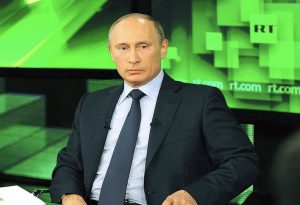A coalition of journalistic organizations, including Reporters Without Borders (RSF) and the Committee to Protect Journalists (CPJ), met this week to denounce that the Maltese authorities have yet to take steps to protect media professionals from the country.
The warning comes five years after the death of journalist Daphne Garuana Galizia, who was killed in a bomb attack in 2017, a crime that has alarmed European journalism as such attacks are not common in the region.
A year after the publication of this report, which also provided guidance to the Maltese authorities on creating a conducive environment for the work of the press, practically nothing was done, according to the organizations, and many professionals remain the target of threats. .
Journalist killed on order of businessman
Author, investigative journalist and blogger Daphne Caruana Galizia was Malta’s leading journalist. She died on October 16, 2017, when the bomb placed in her car was triggered by her cell phone.
Last year, an independent investigation concluded that the Maltese government must “take responsibility” for the crime.
In August last year, casino businessman Yorgen Fenech, who was involved in money laundering and corruption allegations, was indicted as the person behind the journalist’s murder.
He has been in custody since 2019, awaiting pre-trial detention, and there are already numerous bail applications rejected by the justice system.
Shortly before Fenech’s indictment, an independent investigation into Caruana Galizia’s death was opened to the press. The document considered the crime “predictable and preventable” and held the country’s government responsible for the attack on the journalist:
“[O] The state must take responsibility for the murder, creating a climate of impunity that emanates from the highest levels at the center of the administration and spreads to other agencies such as regulators and the police.”
The report made a number of recommendations to the Maltese government so that it could prevent the killing of journalists such as Caruana Galizia.
Also Read | Malta | Pressure on the press mounts, top opposition blogger leaves the country
However, a year after the document was drafted, an analysis conducted by the Daphne Caruana Galizia Foundation in partnership with NGO Artigo 19 Europa revealed that the government, with some exceptions, did not implement the recommendations and rejected proposals for the creation of anti-opponents. – corruption legislation.
Caruana Galizia’s work has always focused on issues such as corruption, nepotism, nepotism, and money laundering practiced by the country’s political elite. P
As a result, the report provided guidelines for the Maltese authorities to put in place mechanisms to enable the press to safely investigate these matters.
A coalition of nine press freedom organizations is pressuring the Maltese government to adopt the recommendations proposed in the investigation, according to analysis by the foundation and the European NGO.
In addition to the RSF and CPJ, the group consists of Article 19 Europe, the European Union of Journalists, the European Center for Press and Media Freedom (ECPMF), the European Federation of Journalists (EFJ), the International Freedom of Expression Exchange (IFEX). ), the International Press Institute (IPI) and PEN International.
IPI joins the other 8 #media freedom organizations that search #Malta implement the recommendations of the public investigation into the murder #DaphneCaruanaGalizia.
The changes so far are symbolic gestures rather than effective and systemic reforms required.https://t.co/QyrrfDiSNm
— IPI – The Global Network for Independent Media (@globalfreemedia) 29 July 2022
According to the coalition, the guidance provided in last year’s investigation was “a historic opportunity for the Maltese authorities to meet their international human rights obligations to protect journalists.”
But the changes so far have been “symbolic gestures”, not “immediately needed effective reforms”:
“In particular, the government has not implemented the recommendation to enact laws to combat financial crime and corruption.
There are serious concerns that the police and the attorney general’s office are still not investigating and prosecuting the corruption that led to the murder of Daphne Caruana Galizia and the scandals that erupted after her death.”
The group points out that the “lack of political will” to investigate corruption uncovered by journalists in Malta has drawn serious international criticism.
For example, in April, European Public Prosecutor (EPPO) Laura Kövesi, representing the European bloc’s financial crime watchdog, said: “Malta is showing a nominal commitment to efforts to prevent fraud and corruption in the European Union. NO” .
The coalition also points out that the slowness of processes and other judicial phases, even where investigations are launched, “contributes to impunity for corruption” in the country.
“The delay in implementing the recommendations is detrimental to journalists who continue to expose the corruption that killed Daphne Caruana Galizia,” the group said.
The organizations noted that attempts have been made to bring Maltese police closer to journalists, but “a lot remains to be done, both in terms of educating the police on international norms regarding freedom of expression and ensuring police confidence. journalists”.
Also Read | The court maintains the blockade of Russian state television in Europe; Moscow vows to ‘disturb the Western media’
Malta establishes media committee
The reflections of the case of the journalist killed in Malta received negative attention in the country’s press. disinformation campaign launched against media experts, lawyers and public figures involved in the investigation of the attack.
Back then, fake emails were sent and even fake websites were created to manipulate public opinion.
To undermine such situations and bring officials closer to journalists, the government announced the establishment of the “Committee of Media Experts” in January this year.
The purpose of the committee is for members of the press to provide feedback and observations to Prime Minister Robert Abela on proposed reforms in the country’s media laws.
The Maltese government submitted two related projects for the committee’s consideration.
One is to “amend the Constitution and various other laws to strengthen the right to freedom of expression and privacy, and to implement various measures to protect the media and journalists”.
Another “ensures the establishment of structures for the protection of democratic society, including the protection of journalists, persons with roles in the media and non-governmental organisations, and persons in public life”.
But the coalition of journalistic organizations points to the lack of transparency that jeopardizes the Malta committee’s legitimacy:
“The committee did not meet with civil society, the media or journalists or the family of Daphne Caruana Galizia. He also refused to attend conferences on media freedom in Malta.
While it is understood that the Prime Minister took the opinion of the Commission on the draft law and the Commission continues its work, the process he chose to follow lacks transparency.
Also Read | Study warns ‘red lights are flashing’ for press freedom in Europe
source: Noticias
[author_name]


